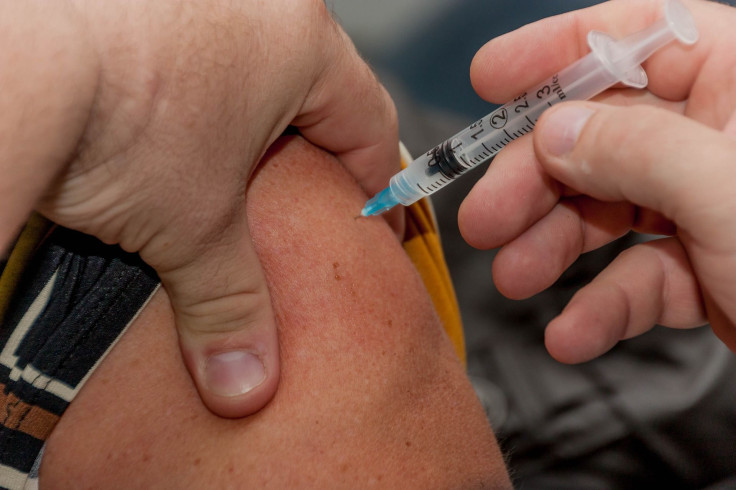Exercise After Getting Vaccine Can Increase Antibodies Against COVID-19: Study
KEY POINTS
- Exercising after vaccination may increase antibody response to COVID-19
- It did not result in any additional side effects from the vaccine
- The results are in line with the findings of other studies that suggested exercise preceding immunization improved antibody response
Doing light- to moderate-intensity long-duration exercise following COVID-19 vaccination may increase antibody response without causing any additional side effects, a study suggested.
Researchers at Iowa State University found that 90 minutes of exercise resulted in a consistent increase in serum antibody response four weeks post-immunization in participants who received the Pfizer vaccine, according to research published in ScienceDirect.
The study's 36 participants, most of whom were considered overweight or obese based on their body mass index, were randomly assigned to either the exercise routine or instructed to go about their daily routine without exercising on the day of the first jab.
All participants were then asked to avoid exercise on the day they received their second dose.
The exercise participants were later found to have "significantly greater" antibodies compared to those who did not exercise, according to the researchers.
"These findings suggest that adults who exercise regularly may increase antibody response to influenza or COVID-19 vaccine by performing a single session of light- to moderate-intensity exercise post-immunization," the study authors said.
Additionally, while all participants recorded side effects following vaccination, the perception of these was "not significantly different" between those who exercised and those who did not.
"There were no differences in the total number of side effects or duration of side effects in exercise compared to no exercise subjects in response to the vaccine... indicating a potential benefit of exercise with no change in side effect profile," the study said.
However, researchers noted that participants aged between 44 and 62 had "significantly lower fold changes in antibody response" compared to those who were aged between 18 and 43 years old.
The results are in line with the findings of other studies that suggested exercise preceding immunization improved antibody response, according to the researchers.
"These findings are the first to show that light- to moderate-intensity long-duration exercise enhances antibody response across several vaccine formulations, including COVID-19," the researchers said.
One possible explanation for the earlier results is that exercise may act as an acute stressor, which may increase antibody response when applied before immunization, the authors said.
Eccentric exercise may also produce a local inflammatory response that potentially results in greater antigen-presenting cell activation, previous studies suggested.
The Centers for Disease Control and Prevention (CDC) recommends that people exercise their jabbed arms after they receive their COVID-19 vaccines to reduce pain and discomfort.
A total of 77,592,982 coronavirus cases and 916,977 deaths have been reported in the U.S. thus far, according to provided by the CDC data.

© Copyright IBTimes 2025. All rights reserved.





















